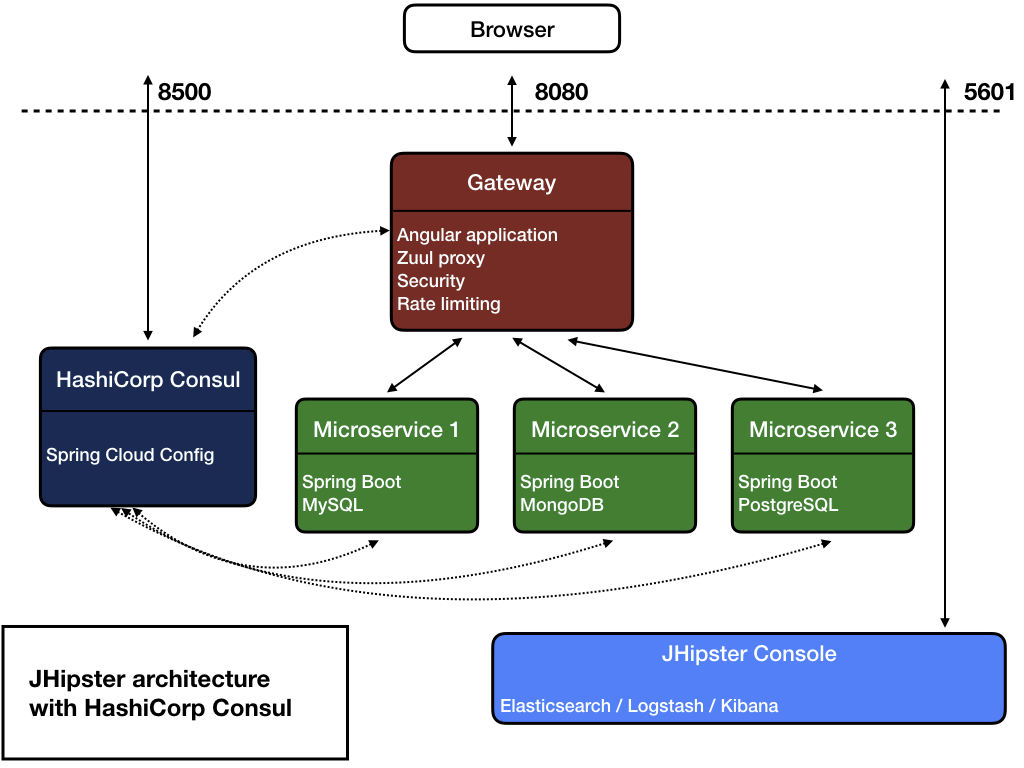Consul
Consul 概述
作为 JHipster Registry 的一个替代,你可以使用 Consul,一个由 Hashicorp 提供的数据中心解决方案。 比较与 Eureka,它拥有很多优势:
- 比 Eureka 更容易在多节点集群架构上维护。
- 它比起可用性更关注于强一致性(译注:CA),这使得它的集群状态的变化可以更快的传播。
- Consul 服务发现可以和现有系统更方便地集成,通过 DNS 接口 或 HTTP API。
架构

开始
开始开发一个依赖 Consul 注册中心的应用,你需要先在 docker 容器中启动一个 Consul 实例:
- 运行
docker-compose -f src/main/docker/consul.yml upto start a Consul server indevmode. Consul will then be available on port8500of your Docker host, so if it runs on your machine it should be at http://127.0.0.1:8500/.
You can also use the Docker Compose subgenerator to generate a docker configuration for several consul-enabled applications.
应用的 Consul 设置
If you have chosen the Consul option when generating your JHipster microservice or gateway app, they will be automatically configured to retrieve their configuration from Consul’s Key/Value store.
The Key/Value (K/V) store can be modified using either its UI available at http://localhost:8500/v1/kv/ or its REST API. However changes made this way are temporary and will be lost on Consul server/cluster shutdown. So, in order to help you interact easily with the Key/Value store and manage your configuration as simple YAML files, the JHipster Team has developed a small tool: the consul-config-loader. The consul-config-loader is automatically configured when starting Consul from the consul.yml docker-compose file but it can also be run as a standalone tool.
It can be run in two modes:
- a dev mode, where YAML files from the
central-server-configdirectory are automatically loaded into Consul. Moreover any change to this directory will be immediately synchronized with Consul. - a prod mode, that uses Git2Consul to setup the YAML files contained in a Git repository as a configuration source for the Key/Value store.
Note that as with the JHipster Registry, your configuration files will need to be named appname-profile.yml where appname and profile correspond to the application’s name and profile of the service that you want to configure. For example, adding properties in a consulapp-prod.yml file will set those properties only for the application named consulapp started with a prod profile. Moreover, properties defined in application.yml will be set for all your applications.